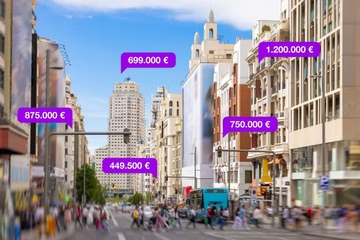Foreign Trade Chamber: Kosovo's tariffs political issue, CEFTA is in jeopardy

Kosovo's decision to introduce 100 percent import tariffs on the goods from Bosnia and Herzegovina is not of economic but of political nature, and political is the only way to solve it, said Bosnia's Foreign Trade Chamber (VTK BiH).
Oglas
“What poses the biggest danger with keeping those taxes in place is Bosnia and Herzegovina's entrepreneurs losing the market and being replaced with other partners, such as Italy, and once lost market is hard to return,” VTK told Fena news agency.
Pristina authorities introduced 100 percent import tariffs for the goods from Bosnia and Serbia in late November last year in response to what Kosovo official said was Serbia's “aggressive campaign against Kosovo in the international stage.”
The decision came a day after Bosnia and Serbia failed to support Kosovo's membership in the Interpol but this was never cited as an official reason to introduce the taxes.
Oglas
According to Bosnia's Foreign Trade Chamber, 14 percent of Bosnia's overall trade exchange refers to the CEFTA (Central European Free Trade Agreement) countries of which four percent refers to Kosovo.
“Also, this is the important market for Bosnia and Herzegovina entrepreneurs because we mostly export the products of higher added value, and we import the production material we don't have on our market. Over the past five years Bosnia and Herzegovina exported to Kosovo the goods averagely worth some 160 million to 170 million marks (approx €81 million to €86 million), and imported some 14 million marks (some €7 million),” the chamber said.
VTK said this was apparently “a harsh violation” of the CEFTA free-trade zone and principles of regional cooperation.
“We are witnesses that the European Commission sent a call for the abolition of the taxes and we agree it is necessary to more seriously and strongly approach solving of this problem because CEFTA has never been more jeopardised than it is now,” said Bosnia's agency.
Kakvo je tvoje mišljenje o ovome?
Učestvuj u diskusiji ili pročitaj komentare
Oglas
Kakvo je tvoje mišljenje o ovome?
Učestvuj u diskusiji ili pročitaj komentare
Oglas





 Srbija
Srbija
 Hrvatska
Hrvatska
 Slovenija
Slovenija



























































